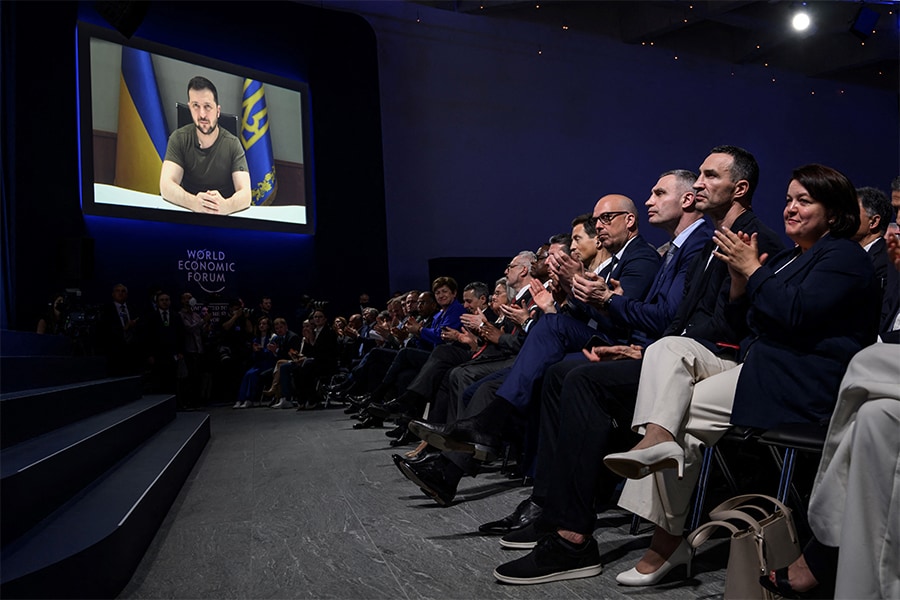
After Covid-19 hiatus, Davos paints gloomy world picture
Here is a roundup of the main issues tackled by the World Economic Forum at the Annual Meeting 2022
 Participants with Permanent representative of Ukraine to the United Nations office in Geneva, Yevheniia Filipenko (R) Ukrainian former boxer Wladimir Klitschko (2nd R) and Kyiv's Mayor Vitali Klitschko (3rd R) applaud the speech of Ukrainian President Volodymyr Zelensky (screen) following his address by video conference during the World Economic Forum (WEF) annual meeting in Davos on May 23, 2022. (Credits: Fabrice COFFRINI / AFP)
Participants with Permanent representative of Ukraine to the United Nations office in Geneva, Yevheniia Filipenko (R) Ukrainian former boxer Wladimir Klitschko (2nd R) and Kyiv's Mayor Vitali Klitschko (3rd R) applaud the speech of Ukrainian President Volodymyr Zelensky (screen) following his address by video conference during the World Economic Forum (WEF) annual meeting in Davos on May 23, 2022. (Credits: Fabrice COFFRINI / AFP)
From the Ukraine conflict to warnings of climate cataclysm and soaring inflation, the world's political and business elites tackled some gloomy matters in their first Davos summit in more than two years.
Instead of the usual snowy winter wonderland of past gatherings, grey skies and rain added to the gloomy mood during the four-day forum that wrapped up Thursday.
The 2021 World Economic Forum in the Swiss ski resort was cancelled due to the Covid pandemic and the Omicron variant forced this year's event to be postponed until spring.
Here is a roundup of the main issues tackled by the WEF:
Zelensky demands more weapons
Ukrainian President Volodymyr Zelensky was the guest of honour on Monday, appearing via video link in his trademark olive green T-shirt.







